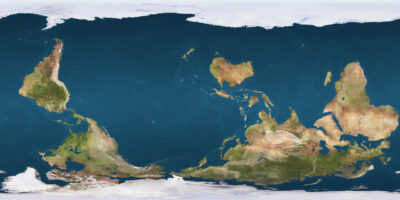
Kia ora, talofa!
The School of Critical Studies in Education at the University of Auckland calls for critical and critical-creative contributions to a forthcoming special issue of Knowledge Cultures on what it is to do critical theory in the Glocal South.
For the sake of argument, we propose two problems with critical theory:
- Critical theory can embody a certain geopolitical paradox: historically, it is a Western European intellectual tradition and practice rooted in the ‘Enlightenment,’ but, epistemologically, it aims to produce ideas and outcomes that are true anywhere. As a result, when it is taken up elsewhere, it can be seen as colonial, or, at the very least, to have ‘travelled’ strangely.
- Critical theory can express a certain positional paradox: it is at once inherently ‘suspicious’ (of the status quo of social relations and phenomena, e.g., in ideology or texts) and utopian (in its hopes for social transformation). Thus, it can seem, at once, hyper-‘critical’ and, to use a phrase beloved of its critics, ‘wildly impractical.’
And, yet, critical theory has been a powerful inspiration for intellectual work among Indigenous or ‘Southern’ scholars, and a powerful instrument of social change in indigenous communities and the Global South. It has thus enabled people to speak back to global forces that emanate from elsewhere such as colonialism, racism, neoliberalism, environmental exploitation and patriarchy.
You may choose to address one or more of the following questions:
- What does critical theory mean for you – and your community – here (where you are) and now?
- How does critical theory ‘travel’? (How has it been indigenised or Southernised, i.e., glocalised?)
- What does critical theory enable us to do, in practical terms? (How is it transformative or creative?)
We welcome contributions that adopt participant-led, post-qualitative or arts-based methodologies, and contributions from scholars at all stages in their academic careers and practitioners.
Important dates
1 March 2022: abstracts (c. 200 words) submitted to And Pasley (a.pasley@auckland.ac.nz) and Sean Sturm (s.sturm@auckland.ac.nz)
1 April 2022: contributors invited to submit a full paper (c. 7500 words)
1 July 2022: manuscripts submitted to the editors for peer review
1 September 2022: peer reviews sent to the contributors
1 November 2022: deadline for submission of revised manuscripts
1 December 2022: special issue published
For further details about abstracts, important dates and the peer review process, please see the Knowledge Cultures Call for Papers – Critical Theory in the Global:Indigenous South.
Kirsten Locke, Jacoba Matapo, And Pasley, Sean Sturm
